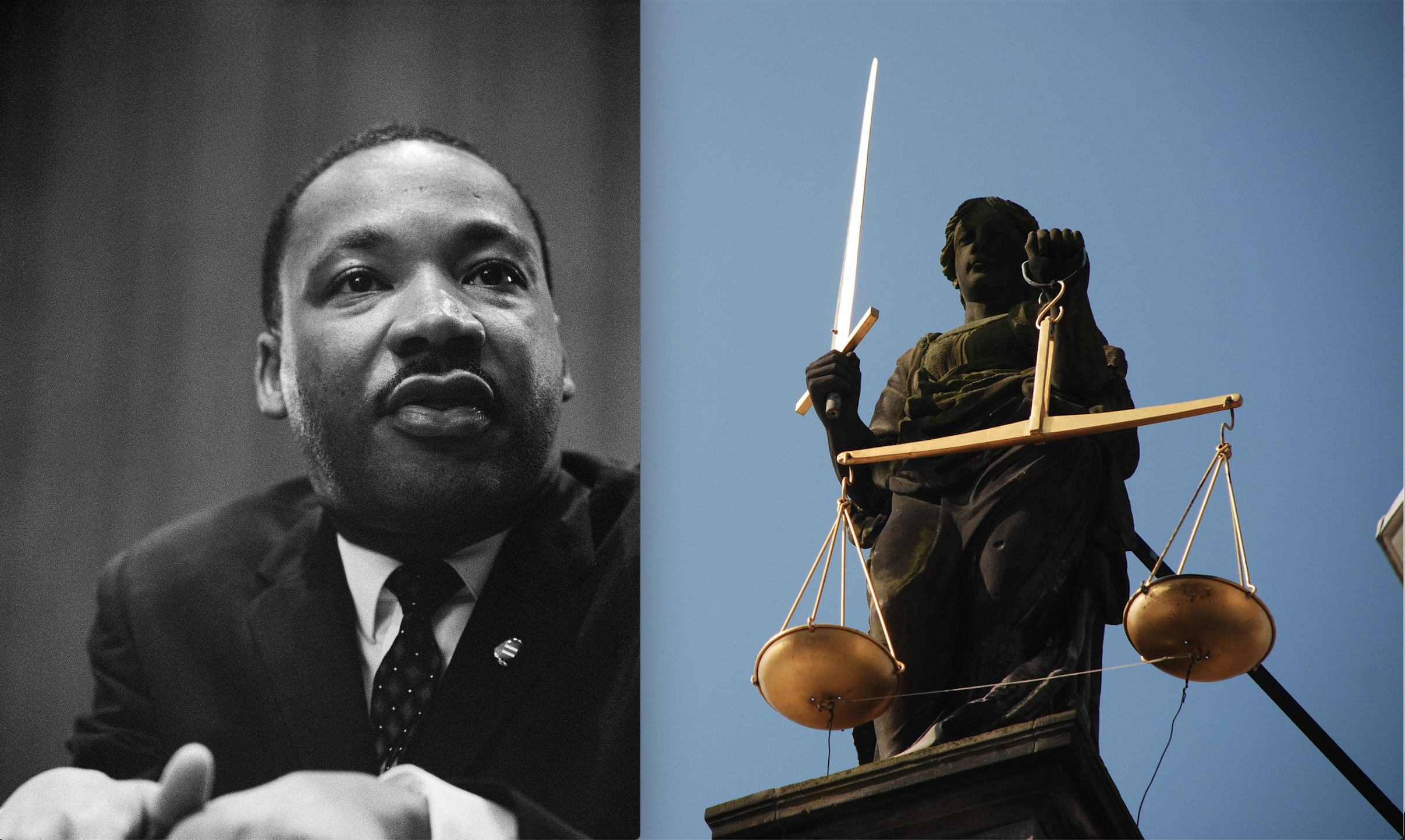What is jury nullification, and what does it have to do with MLK?
Today is Martin Luther King, Jr. Day, when the United States celebrates the contributions of MLK to civil rights, enfranchisement of the African American community, and standing up against entrenched interests for the sake of the poor and downtrodden. Martin Luther King, Jr. was a divisive and ultimately powerful force in the national dialogue because he took controversial stances. In an era where Jim Crow laws blanketed the Southern United States, he advocated for breaking the law for the sake of adhering to a “higher law.” As he said after a bus boycott, “the arc of the moral universe is long, but it bends towards justice.” He called upon people of all colors and creeds to recognize that the law is not always just. Progress for the greater good, he argued, sometimes requires breaking the law.
What is Civil Disobedience?
The law reflects the will of those in power to control society. In a tyranny, many are oppressed. But even in a democracy, the minority can be oppressed by the majority. In the nineteenth century, slavery was legal, but freeing slaves was criminalized. In the twentieth century, genocide took place legally across several different countries, but hiding refugees was criminalized. A generation ago, segregation was legal, but protesting it was criminalized. Sometimes conscientious objectors break the law in favor of allegiance to a higher moral code they feel compelled to uphold.
Trial Tactics: Jury Nullification
What does this have to do with criminal defense law? In order to make its cast against a citizen charged with a crime, the State must prove every element of the offense charged beyond a reasonable doubt. This means that a jury must believe, with a great deal of certainty, each element required to be proved by the state. So what happens when a jury believes a person broke the law, but doesn’t believe that person deserves the punishment for breaking that law? What if there is no valid reason for criminalizing the behavior?
Jury Nullification: An Easy Touch Plants an Idea That Takes Root
A skilled trial attorney can suggest the possibility that the jury decide whether or not the person charged deserves to be punished, even if they believe he did in fact break the law. In the days of Martin Luther King, Jr., imagine if Rosa Parks were charged with refusing to give up her seat in the white section of the bus. Imagine King were charged with unlawful protesting of the treatment of African Americans in Alabama. If you could go back in time, would you convict them because they broke the law, even if the State could prove their guilt beyond a reasonable doubt?
This same thinking can be applied today to laws which provide for Draconian penalties disproportionate to the offense. Many of the most commonly charged offenses, including most drug offenses, many assault charges, victimless DUI situations, unintentional mistakes related to firearms, domestic misunderstandings, etc. don’t deserve the maximum punishment provided under the law in the eyes of most potential jurors. The trick is just convincing them that their intuitions about the law are reliable.
To get the best result for his client, then, a trial lawyer might introduce the idea of jury nullification. That is, a lawyer may suggest that the jury nullify a law by refusing to find the defendant guilty, even if they believe the State’s version of the facts is correct.
Now, most judges won’t allow you to openly argue in favor of jury nullification of a law, since they are trying to follow the law precisely. Jury nullification is just the opposite: it asks the jury to disregard the law in favor of their own judgment of what is right. To get the jury on the right wavelength, a skilled trial attorney might emphasize the jury’s sole discretion to decide the case, repeat the high burden of proof required for the State to make its case, question the validity of police testimony, or even question what use the law in question serves. Even if one person on the jury gets the idea, that one person can then openly advocate for nullification inside jury deliberations.
Not every case is a battle between an unjust law and a conscientious defendant. Most laws are good in the eyes of larger society. But jury nullification is a valuable tool in the menu of options available to the trial lawyer who knows how to make use of it. With a gentle suggestion, jury nullification could make the difference between a conviction and acquittal at trial.
Questions?
If you have questions about how jury nullification might apply to your case, or the strategy involved in going to trial to get completely acquitted of a charge, contact Law Office of Walker Fults immediately to discuss your options. Walker Fults has successfully defended clients at trial, using nullification tactics in voir dire and closing arguments to obtain acquittals for his clients.



